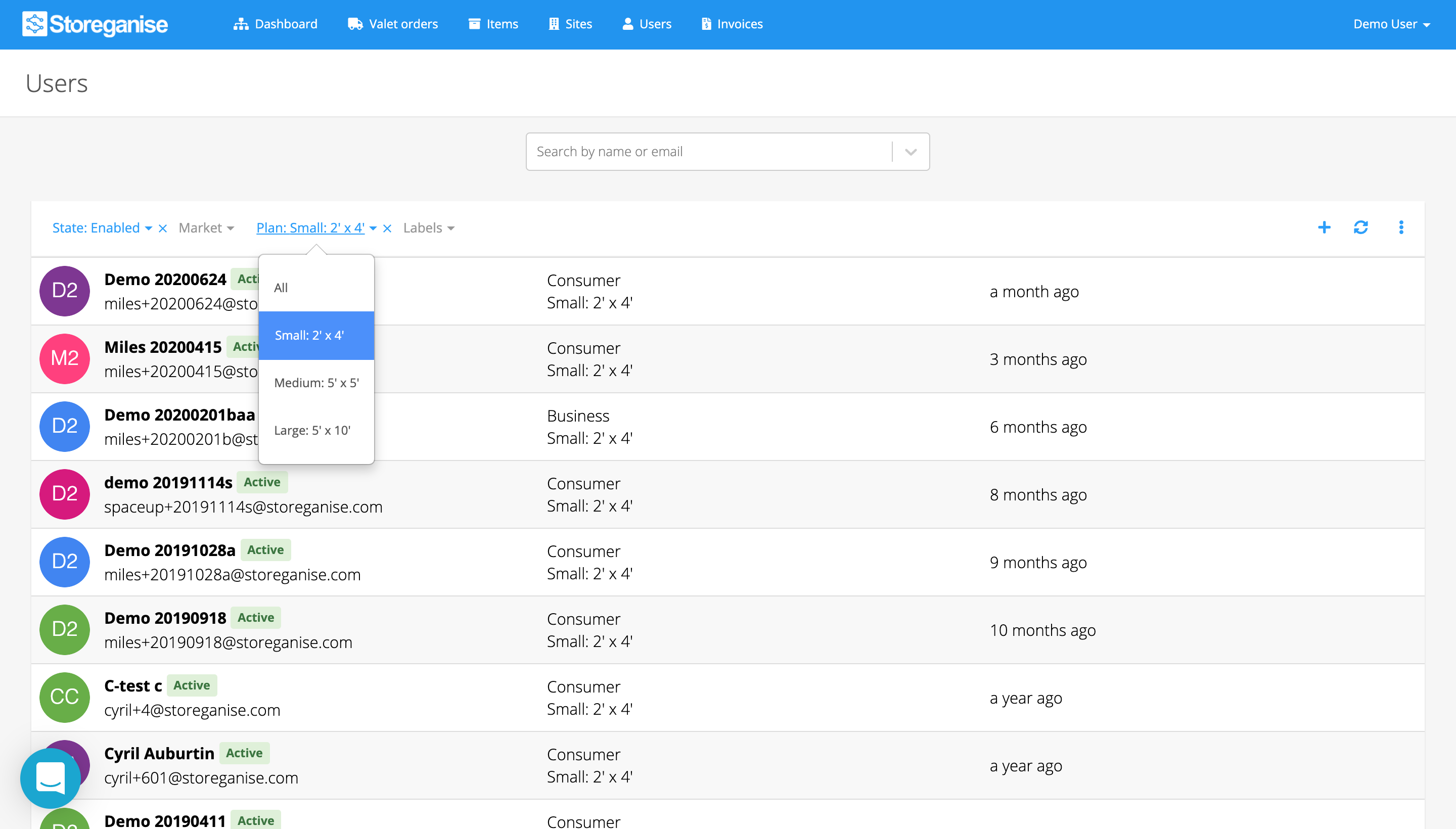Filter and search for user information
The Users tab is where you can access the data on all user accounts in your Storeganise instance.You can filter and export data in CSV format.
 It's possible to combine user search with field search in the form key:value where key can be:
It's possible to combine user search with field search in the form key:value where key can be:
Filters
Data can be filtered according to these filters:State
- Active: Customers who are actively renting a storage unit or storing items with you or have recurring charges on their account.
- Inactive: Enabled accounts that are not currently tenants, do not have items in storage or don't have any active recurring charges setup.
- Disabled: Accounts that have been manually disabled by a Management Portal user for whatever reason. Disabled users will be unable to log in to their account in the Customer Portal or Management Portal (if they had been given Admin rights).
- Enabled: Accounts that haven't been disabled via the Management Portal. Can be Active or Inactive.
- Staff: Users that have one or more admin roles enabled.
Market (specific to valet storage users)
In the case that you have multiple Markets set up, you can sort by the respective market the users are assigned to.Plan (specific to valet storage users)
If you charge customers by Volume plans, you can sort by the corresponding plans you have set up.
Labels
If you have custom-made labels, filter your users by the corresponding labels you have created.Search
The text box bar at the top of the Users tab allows you to search for a specific user based on their name or email address.
Advanced search:
address: e.g. "address:Centro" will find all users with an address line starting with "Centro"area(Valet storage)companyNamephonephone2(alternate phone number)- any custom field by code, e.g. if you have a user custom field
dobthen searching "dob:1980" will filter all users with this custom field starting by "1980". note: for boolean custom fields, the values should be "true" or "false", and for integer or number custom fields, a range search is written for example "1..10" (between 1 and 10, inclusive), "1.." is at least 1, "..10" at most 10.
Jump to